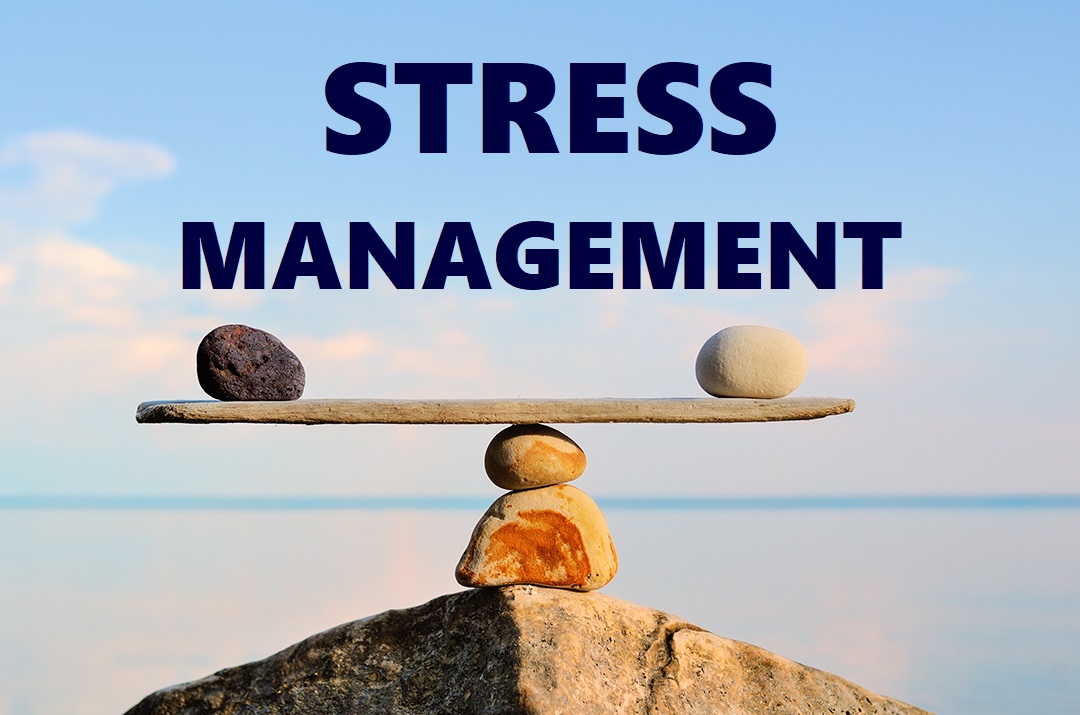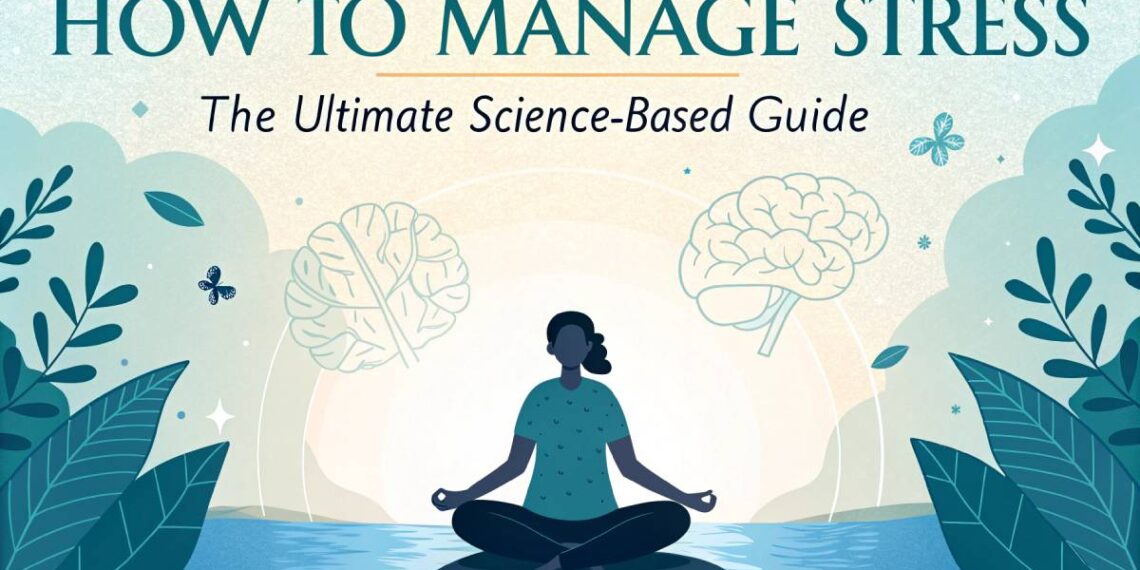Understanding Stress: The Basics
Managing stress can often feel like you’re swimming against a strong current. Life can throw myriad challenges your way, and sometimes the pressure can be overwhelming. But first, let’s take a step back and look at what stress really is and how it affects us.
What is Stress?
Stress is essentially the body’s natural response to the pressures and demands of daily life. Think of it as a protective mechanism, similar to an alarm system that gets triggered when there’s a perceived threat. This response is known as the fight-or-flight reaction. It prompts your body to release hormones like adrenaline and cortisol, which increase your heart rate and blood pressure.
However, not all stress is bad. In small doses, stress can be beneficial; it pushes you to meet deadlines, complete tasks, and achieve goals. Here’s how stress can manifest positively:
- Motivation : A looming deadline can fuel you to focus and finish a project.
- Adaptability : Stress prepares you to handle new challenges, making you more adaptable in difficult situations.
Yet, when stress becomes chronic — stemming from everyday hassles like traffic jams, job pressures, or financial worries — it can lead to significant health issues. That’s why understanding stress is crucial.
The Science of Stress
The science behind stress reveals a fascinating interplay between your mind and body. When your brain perceives a demand or threat, it goes into high alert mode:
- The Alarm Reaction: Your brain acts like a smoke detector, identifying a threat.
- Hormonal Response : In reaction, it signals your adrenal glands to release hormones. These hormones:
- Increase heart rate.
- Elevate blood pressure.
- Boost energy by releasing glucose into your bloodstream.
- Physical Reactions : These changes prepare you to either fight the threat or flee from it. This is where the term fight-or-flight comes from.
While this response is all about survival, it becomes problematic if triggered continually by the stresses of daily life. Your body is not meant to stay in that heightened state for long periods. Just like a smoke detector that keeps ringing with every small puff of smoke, constant stress can keep you on edge, leading to what we now refer to as chronic stress.
Let’s break down these stress responses with a simple table:
| Stage of Stress Response | What Happens |
|---|---|
| Alarm Phase | Heart rate and blood pressure rise. |
| Resistance Phase | Body tries to cope with prolonged stress. |
| Exhaustion Phase | Resources depleted leading to fatigue/disease. |
The Effects of Chronic Stress
Chronic stress can wreak havoc on both your physical and mental health. Over time, it can lead to:
- Physical Problems : Heart disease, obesity, diabetes.
- Mental Health Issues : Anxiety, depression, burnout.
Imagine you’re driving home after a long day at work, your mind racing with the tasks ahead. Suddenly, you hit a traffic jam, and your stress spikes. This is your body responding to a perceived threat to your schedule. If this kind of scenario plays out daily, it can drain your mental reserves, leaving you feeling exhausted.
Recognizing what triggers your stress is vital. Keeping a stress journal can help. Each time you feel stressed, jot down the circumstances — perhaps it was a tough meeting, an argument, or even a frustrating moment driving. This practice helps in identifying patterns and stressing factors in your life.
Identifying Stressors
To effectively manage stress, understanding what causes it is imperative. Here are some common sources:
- Work pressures (deadlines, responsibilities)
- Financial issues (bills, expenses)
- Major life changes (moving, changing jobs)
By acknowledging these stressors, you take the first step towards managing stress better.
Conclusion
Understanding stress is not just about recognizing its symptoms but also about knowing how it operates within you. It’s your body’s way of communicating its limits. This foundational knowledge can empower you to take actionable steps. Make it your mission to assess your stress levels, identify triggers, and implement proactive strategies to manage stress. Whether through mindfulness, deep breathing, or even routine exercise, investing time in stress management can significantly enhance your mental and physical health.
In the journey of life, learning how to manage stress effectively can pave the way for a more balanced and fulfilling existence. So, take a deep breath, recognize the signs, and prepare to be the captain of your ship amidst the stormy seas of life.

Recognizing the Signs of Stress
As you navigate the challenges of everyday life, it’s easy to feel overwhelmed, anxious, or fatigued. Understanding the signs of stress is crucial because it empowers you to take action before stress spirals out of control. Stress can manifest physically and emotionally, and recognizing these symptoms is the first step towards managing it effectively.
Physical Symptoms
When life gets stressful, your body often sends you warning signals — maybe even before you consciously realize what’s going on. Here are some common physical symptoms that indicate you might be under stress:
- Sleep Disturbances : Do you find it hard to fall asleep or stay asleep? Maybe you wake up feeling just as tired as you were when you went to bed. Stress can disrupt your sleep patterns and lead to insomnia.
- Muscle Tension or Pain : Stress often causes muscle tightness, particularly in the shoulders, neck, and jaw. You might find yourself clenching your jaw or hunching your shoulders, which can result in persistent tension headaches or other discomforts.
- Digestive Issues : Stress can wreak havoc on your stomach and digestive system, leading to symptoms such as:
- Nausea
- Diarrhea
- Constipation
- Irritable Bowel Syndrome (IBS)
My friend Jane began to experience severe stomach issues during a particularly stressful period at work. After consulting a doctor, she realized her symptoms had much to do with her workload and her attempts to juggle multiple responsibilities at once.
- Increased Heart Rate : You might notice your heart racing in stressful situations. This physical response is part of the body’s fight-or-flight mechanism, preparing you to either flee or confront danger.
- Sweating and Skin Reactions : Have you ever experienced sudden sweating, regardless of the temperature? Stress can trigger sweat glands and even lead to rashes or eczema flare-ups.
Other common signs include dizziness, fatigue, and changes in appetite. You might find yourself craving comfort food during stressful times, even though you know it may not be the healthiest choice.
Here’s a quick table outlining possible physical symptoms of stress:
| Symptom | Description |
|---|---|
| Sleep disturbances | Difficulty falling or staying asleep |
| Muscle tension | Tightness in shoulders, neck, and jaw |
| Digestive issues | Nausea, diarrhea, constipation |
| Increased heart rate | Racing heart during stressful situations |
| Sweating | Excessive perspiration, rashes, or skin irritations |
Emotional Symptoms
Just as stress can manifest physically, it also affects your emotional state. Being aware of how stress impacts your feelings is essential for addressing it effectively. Consider these common emotional symptoms of stress:
- Irritability and Mood Swings : Stress can make you feel more emotional than usual. You might find yourself snapping at loved ones over trivial matters or feeling overwhelmed by minor inconveniences.
- Anxiety and Constant Worry : Stress often leads to a sense of unease or persistent worry about the future. It can feel as if your mind is racing, going over potential problems like a never-ending loop.
- Low Self-Esteem : Prolonged stress can lead to feelings of inadequacy and self-doubt. You might think, “I can’t handle this; I’m just not good enough.”
- Difficulty Concentrating : Stress can cloud your mind, making it hard to focus on tasks. You might feel like your head is in a fog and that you’re unable to think clearly.
For instance, I recently spoke with my colleague Tom, who shared his struggle with stress-induced anxiety. When faced with multiple deadlines, he found his worry about the outcomes consumed him. By recognizing these feelings, he was able to seek help and manage his workload better.
- Social Withdrawal : If you’re feeling stressed, you might prefer isolation over social interaction. This withdrawal can exacerbate feelings of loneliness, creating a vicious cycle where you feel even more stressed.
Here’s a concise overview of emotional symptoms to watch for:
| Emotion | Description |
|---|---|
| Irritability | Heightened anger or frustration over small things |
| Anxiety | Constant worry or feelings of dread |
| Low self-esteem | Feelings of inadequacy, self-doubt |
| Difficulty concentrating | Inability to focus on tasks or remember details |
| Social withdrawal | Reducing social interactions, preferring isolation |
Understanding these physical and emotional symptoms can help you become more self-aware and proactive in managing stress. It’s essential to pay attention to how you feel and identify when stress is affecting your health and well-being.
Conclusion : Recognizing the signs of stress, both physical and emotional, is vital for maintaining balance in your life. By paying attention to what your body and mind are telling you, you’ll be better equipped to take proactive steps towards stress management. If you experience these symptoms persistently, don’t hesitate to reach out for help, whether it’s from friends, family, or a healthcare professional. Remember, stress is a natural part of life, and acknowledging it is the first step in learning how to manage it effectively.
The Impact of Stress on the Body
Understanding stress is essential, not just for managing it but also for recognizing its wide array of effects on your body and mind. When left unchecked, stress can lead to significant health issues that can affect various aspects of your life. Let’s explore how stress impacts our physical and mental health.
Effects on Physical Health
Stress triggers a complex array of physiological changes. Initially, these changes serve a purpose, helping your body to respond to perceived threats. However, chronic stress can lead to several physical problems. Here are some of the ways stress can negatively impact your physical health:
- Cardiovascular Strain : Stress can raise your heart rate and blood pressure. Over time, this constant state of arousal increases the risk of developing heart disease, hypertension, and stroke. It’s essential to monitor these factors, especially if you often feel overwhelmed.
- Weight Changes : Chronic stress can lead to either weight gain or loss, depending on the individual. Many people turn to food for comfort — often opting for unhealthy choices high in sugar and fat. This can lead to obesity, while others may lose their appetite entirely, resulting in unintended weight loss.
- Weakened Immune System : Prolonged stress can weaken your immune system, making you more vulnerable to infections and illnesses. You might notice that you catch colds more frequently or have difficulty shaking off illnesses when you’re under sustained pressure.
- Muscle Tension and Pain : As mentioned earlier, stress can cause your muscles to tighten. This tension can lead to discomfort and pain, particularly in the neck, back, and jaw. It’s not uncommon for people under stress to experience chronic headaches or migraines.
- Digestive Issues : Stress can disrupt your digestive system. Conditions such as irritable bowel syndrome (IBS), acid reflux, and heartburn often manifest during stressful times. An anecdote from my friend Lisa illustrates this well; she found that her IBS symptoms flared up whenever she faced tight deadlines at work.
- Hormonal Imbalances : Chronic stress affects hormone levels, potentially leading to issues like adrenal fatigue, which can cause fatigue, mood swings, and muscle weakness.
Here’s a quick overview of some potential physical effects of stress:
| Physical Effect | Description |
|---|---|
| Cardiovascular strain | Increased heart rate and blood pressure |
| Weight changes | Gain or loss due to altered eating habits |
| Weakened immune system | Increased susceptibility to infections |
| Muscle tension and pain | Chronic headaches, neck, and back pain |
| Digestive issues | Irritable bowel syndrome, heartburn, nausea |
| Hormonal imbalances | Mood swings, fatigue, and muscle weakness |
Effects on Mental Health
Just as stress impacts our physical well-being, its effects on mental health can be profound and far-reaching. Understanding these impacts is crucial to ensuring overall health. Here are some notable effects:
- Anxiety and Depression : Chronic stress can lead to or exacerbate mental health disorders such as anxiety and depression. If you’re feeling persistently worried, hopeless, or down, it might be a sign that stress is taking a toll on your mental health.
- Cognitive Impairment : Stress can impair cognitive functions such as concentration, memory, and decision-making. It can feel like your brain is in a fog, making it difficult to focus at work or home. Remember my colleague, Tom? During stressful periods, he found it challenging to retain information, leading to decreased productivity.
- Emotional Instability : Under stress, you may become more irritable or prone to mood swings. This emotional volatility can strain relationships with family and friends. It can also create a sense of isolation, where you feel misunderstood or frustrated by those around you.
- Social Withdrawal : People under stress may tend to isolate themselves, avoiding social situations and interactions. While it’s natural to want to retreat during challenging times, this withdrawal can lead to loneliness and exacerbate existing mental health issues.
- Low Self-Esteem : Chronic stress can lead to feelings of inadequacy and diminish your confidence. You might start doubting your abilities, leading to avoidance behaviors that further compound stress.
- Risky Behaviors : In an attempt to cope, some people may turn to unhealthy habits like substance abuse — smoking, drinking, or drug use — as a temporary escape. While this might provide short-term relief, these behaviors often complicate stress further and can lead to long-term health problems.
Here’s a quick summary of potential mental health effects of stress:
| Mental Health Effect | Description |
|---|---|
| Anxiety and depression | Increased feelings of worry or hopelessness |
| Cognitive impairment | Difficulty concentrating, remembering information |
| Emotional instability | Heightened irritability and mood swings |
| Social withdrawal | Avoiding social interactions |
| Low self-esteem | Feelings of inadequacy and self-doubt |
| Risky behaviors | Turn to alcohol or drugs for temporary relief |
Conclusion
Recognizing how stress impacts both your physical and mental health can be a game-changer in your overall well-being. Awareness is the first step towards implementing effective stress management techniques. If you find that stress is affecting your life in ways described above, consider seeking support. Whether it’s connecting with friends, engaging in physical activity, or practicing mindfulness, taking proactive steps can pave the way for a healthier, more balanced life. Remember, it’s okay to ask for help when you need it — you’re not alone in this journey!

Science-Backed Strategies to Manage Stress
As we navigate the complexities of modern life, stress can sometimes feel inescapable. Fortunately, a multitude of science-backed strategies can help you manage stress effectively. Let’s explore two powerful approaches: mindfulness and meditation, alongside exercise and nutrition.
Mindfulness and Meditation
Mindfulness and meditation are practices that have gained traction in recent years as effective stress-relief techniques. At their core, these practices encourage you to focus on the present moment and cultivate awareness without judgment.
- What is Mindfulness?
Mindfulness involves paying attention to your thoughts, feelings, and bodily sensations as they arise, without reacting immediately. It’s about being aware of your experiences and recognizing them for what they are. For instance, when feeling stressed about work deadlines, instead of spiraling into anxiety, you can observe those feelings without judgment. - Benefits of Meditation :
Meditation complements mindfulness beautifully by providing a structured way to practice. Regular meditation:- Reduces stress levels by lowering cortisol, the stress hormone.
- Enhances your focus and concentration, making it easier to tackle tasks.
- Increases emotional resilience, enabling you to handle stressors more calmly.
A simple technique you might try is the body scan. Lie down comfortably, close your eyes, and visualize a wave of relaxation sweeping from the top of your head to the tips of your toes. Notice any tension or discomfort in your body, and consciously release it as you breathe out.
- Research Findings :
Numerous studies have demonstrated the effectiveness of mindfulness and meditation. One study published in JAMA Internal Medicine found that mindfulness meditation programs can significantly improve your psychological well-being, reducing symptoms of anxiety and depression. - Real-Life Application :
I once had a colleague named Sarah who struggled with anxiety at work. After attending a mindfulness workshop, she began integrating daily meditation into her routine. To her surprise, after a few weeks, she noticed a marked improvement in her ability to concentrate and a reduction in her anxiety levels during high-pressure situations. - Ways to Practice Mindfulness :
- Set aside a few minutes each day for meditation.
- Practice deep breathing exercises when feeling stressed.
- Incorporate mindfulness into everyday activities, like savoring each bite during a meal or paying full attention while showering.
Exercise and Nutrition
While the mind plays a pivotal role in handling stress, physical health undoubtedly affects your stress levels too. Regular exercise and a nutritious diet can help mitigate the negative impact of stress on both your body and mind.
- Exercise as a Stress Reliever :
Physical activity is a natural way to relieve stress. Engaging in regular exercise can help reduce muscle tension, lower cortisol levels, and promote the release of endorphins — those feel-good hormones that induce a natural high. Here’s how you can benefit:- Aim for at least 150 minutes of moderate-intensity aerobic exercise per week (e.g., brisk walking, cycling, or swimming).
- Even a short 10-minute walk can lift your spirits and clear your mind when you feel stressed.
- Using Exercise Strategically :
Consider incorporating activities that you enjoy to keep you motivated. Whether it’s dancing, hiking, or practicing yoga, find what brings you joy. During a particularly stressful week, I took up kickboxing; it not only allowed me to express my frustrations but also gave me an exhilarating energy boost that carried over into my work life. - The Role of Nutrition :
Nutrition also plays a crucial role in managing stress. A healthy, balanced diet helps stabilize your mood and energy levels. Focus on:- A predominantly plant-based diet rich in fruits, vegetables, whole grains, and healthy fats.
- Limiting caffeine and sugar, which can lead to anxiety and mood swings.
- Staying hydrated; even mild dehydration can negatively impact your focus and energy.
- Foods That Help :
Certain foods can naturally lower stress levels. Consider incorporating:- Leafy Greens : Spinach and kale are high in magnesium, which helps regulate stress hormones.
- Omega-3 Fatty Acids : Found in fatty fish, walnuts, and flaxseeds, these can reduce symptoms of anxiety and depression.
- Dark Chocolate : Enjoyed in moderation, dark chocolate can lower cortisol levels and improve your mood.
- Creating a Routine :
To make these practices a habit, set specific goals. Perhaps you start your day with a healthy breakfast and take a brisk walk each lunch hour.
Conclusion :
Implementing mindfulness, meditation, exercise, and proper nutrition into your routine can empower you to effectively manage stress. As you integrate these science-backed strategies into your daily life, you’ll likely find yourself feeling more centered, focused, and resilient against life’s myriad challenges. Remember that healthy habits are built over time, so be patient with yourself as you embark on this journey toward wellness.

Building Resilience Against Stress
As we’ve discussed, stress can significantly impact both our physical and mental health. To combat these effects, it’s vital not just to manage stress, but to build resilience — the ability to recover quickly from difficulties and adapt well to adversity. Building resilience can empower you to handle life’s challenges more effectively. Let’s delve into two crucial aspects of resilience: developing coping skills and cultivating strong relationships.
Developing Coping Skills
Coping skills are essential tools to help you manage stress effectively. The way you respond to stress can make a world of difference in how it affects you. Here are some key strategies to help you develop robust coping skills:
- Recognizing Stress Signals :
Developing self-awareness is the first step in building resilience. Pay attention to how your body reacts to stress. Do you experience headaches, muscle tension, or irritability? By identifying these signals, you’ll be better prepared to respond proactively before stress escalates. - Start Small :
Building effective coping strategies often begins with small changes. For instance, you might introduce mini-breaks into your work routine where you step outside for a few minutes of fresh air. In my case, I started allocating just five minutes hourly to practice deep breathing or even stretch at my desk. Over time, these small breaks not only improved my focus but also significantly reduced my feelings of overwhelm. - Practice Mindfulness and Relaxation Techniques :
Techniques such as mindfulness, meditation, or yoga can significantly reduce stress levels. For example, practicing mindful breathing can help calm your nervous system. Consider this simple technique:- Inhale deeply through your nose for a count of four.
- Hold the breath for four counts.
- Exhale slowly through your mouth for six counts.Repeat this for several minutes, and notice how your stress levels begin to diminish.
- Stay Organized :
Keeping your environment and schedule organized can reduce feelings of being overwhelmed. Use tools like planners or apps to manage your tasks effectively. Create to-do lists, and prioritize tasks according to urgency. This method not only helps with time management but also provides a sense of accomplishment as you check off completed tasks. - Healthy Living :
Your physical health greatly influences your ability to cope. Aim to:- Eat a balanced, predominantly plant-based diet.
- Engage in regular physical activity, targeting at least 150 minutes per week.
- Prioritize sleep, aiming for seven to eight hours each night.
- Learn from Experience :
Reflect on past experiences when you’ve successfully managed stress. Consider what coping strategies worked well for you and how you can apply those lessons to current challenges. This reflective practice can help build a personal toolkit of effective responses.
Cultivating Strong Relationships
Strong relationships are fundamental to building resilience. Support from others helps buffer against the effects of stress and can provide a vital network for emotional support. Here are some ways to cultivate and enhance your connections:
- Connect with Friends and Family :
Social interactions matter more than we often realize. Reach out to friends or family members regularly. A simple phone call or lunch date can provide emotional support and comfort. It’s not just about quantity but the quality of interactions. Engaging in meaningful conversations helps relieve stress. - Build New Connections :
Joining groups or clubs can introduce you to new people and expand your support network. Consider local classes or hobby groups that reflect your interests. For example, I took a pottery class which not only allowed me to learn a new skill but also connected me with others who share similar interests. - Be Proactive in Cultivating Camaraderie :
At work or in other environments, take the initiative to foster connections. This could be as simple as organizing a team lunch or a casual coffee catch-up. Positive interactions at work can enhance overall job satisfaction and reduce stress. - Practice Empathy and Kindness :
Showing empathy toward others fosters strong relationships. Listen actively when someone talks to you, validate their feelings, and offer support when needed. Your willingness to be there for others builds a mutual support system. - Express Gratitude :
Regularly express gratitude to those around you. A simple “thank you” or acknowledgment can strengthen bonds and enhance positive feelings among friends and family. Consider starting a gratitude journal where you jot down things you are grateful for or moments of kindness you’ve received from others. - Seek Support When Needed :
Don’t hesitate to reach out for help when stress becomes overwhelming. Whether it’s speaking to a trusted friend or utilizing professional resources, acknowledging when you need support is a key part of resilience.
Conclusion :
Building resilience against stress is an ongoing journey that benefits from developing effective coping skills and fostering supportive relationships. Remember, it’s okay to start small; each step you take can lead to significant improvements in your overall well-being. By nurturing these skills, you empower yourself to face life’s challenges more confidently and emerge stronger on the other side. Ultimately, resilience is about harnessing your inner strength and leaning on others when you need it most. Embrace the power of self-care, connection, and reflection, and watch as your capacity to manage stress and thrive grows.

The Role of Professional Help in Managing Stress
While self-care strategies like mindfulness, exercise, and healthy nutrition are vital components of stress management, there are times when professional help becomes necessary. Seeking assistance from a therapist or medical professional can provide additional avenues for coping with stress and overcoming challenges. Let’s explore two key aspects of professional help: therapy and counseling, as well as medication and treatment options.
Therapy and Counseling
Therapy and counseling are powerful resources for individuals facing overwhelming stress or mental health concerns. Here’s how they can benefit you:
- Understanding the Source of Stress :
In therapy, you’ll have a safe space to explore the underlying causes of your stress. This could be past traumas, work-related pressure, or even ongoing relationship issues. As you delve into these experiences, you may find that simply acknowledging your feelings can be incredibly liberating. - Developing Coping Strategies :
Therapists can equip you with practical tools to deal with stress more effectively. Techniques might include:- Cognitive Behavioral Therapy (CBT) : This approach focuses on identifying negative thought patterns and replacing them with healthier ones. For instance, if you often think, “I’m a failure because I missed a deadline,” a therapist might help you reframe that to, “I didn’t meet my deadline this time, but I can plan better next time.”
- Mindfulness-Based Stress Reduction (MBSR) : Therapists trained in mindfulness can introduce you to techniques that enhance self-awareness and promote relaxation. This method is particularly useful in developing skills to stay present and calm during stressful situations.
- Finding Validation and Support :
Speaking with a professional offers a unique form of support. Unlike friends or family, therapists provide an objective viewpoint. This can help you validate your feelings and encourage you to express emotions without fear of judgment. I recall a time when I felt overwhelmed with work commitments; my counselor helped me realize I wasn’t alone in experiencing such stress and guided me through setting healthier boundaries. - Addressing Trauma and Emotional Wounds :
If your stress is linked to past traumas, working with a therapist trained in trauma-informed care can assist in processing these experiences. This specialized care is vital for those who have faced traumatic events and can help facilitate healing and recovery. - Group Therapy :
Participating in group therapy can also be beneficial. It allows you to connect with others who understand what you’re going through. Sharing experiences and strategies within a group setting can foster a sense of community and reduce feelings of isolation.
Medication and Treatment Options
In some cases, managing stress may involve medication to help alleviate symptoms and restore balance. Here’s what to consider:
- Medication as a Supplement to Therapy :
Medication can be an effective adjunct to therapy. Common types of medication prescribed for anxiety and stress-related disorders include:- Antidepressants: These may help regulate chemicals in the brain that affect mood and stress response.
- Anti-anxiety medications: These are designed to alleviate symptoms of anxiety and can be prescribed for short-term use.
- Beta-blockers : Often used to treat physical symptoms of stress, such as heart racing, beta-blockers can be helpful for performance anxiety or panic attacks.
- Consulting a Professional :
Before starting any medication, it’s crucial to consult with a healthcare professional. They can conduct an assessment, discuss your symptoms, and determine whether medication is appropriate for you. It’s important to communicate openly about your experiences so that the provider can tailor an approach that best meets your needs. - Monitoring and Adjustment :
If medications are prescribed, ongoing monitoring by your healthcare provider is essential. Dosages may need to be adjusted based on how your body responds to the treatment. Regular check-ins can help ensure that the benefits outweigh any potential side effects. - Complementary Treatment Options :
In addition to therapy and medication, there are various non-conventional treatments that may help manage stress. These include:- Acupuncture : Many find this ancient Chinese practice effective for relaxation and stress relief.
- Music therapy : Engaging in or listening to music has been shown to have calming effects that can help manage stress.
- Nutritional support : Working with a nutritionist to create a diet that supports mental health can also be beneficial.
- Lifestyle Adjustments :
Sometimes simple lifestyle changes can lessen the need for medication. Incorporating more physical activity, practicing stress-reduction techniques, and enhancing your diet can improve your overall well-being and resilience against stress.
Conclusion :
If you find that managing stress on your own is becoming increasingly challenging, remember that seeking professional help is a sign of strength, not weakness. Therapists can provide invaluable support, while medication can help with symptom relief when needed. Together, these approaches can cultivate a comprehensive strategy for managing stress effectively. Ultimately, the goal is to empower yourself with the tools and support necessary to navigate life’s challenges with confidence and resilience. You don’t have to face stress alone — reach out and take that important first step towards healing and well-being.








